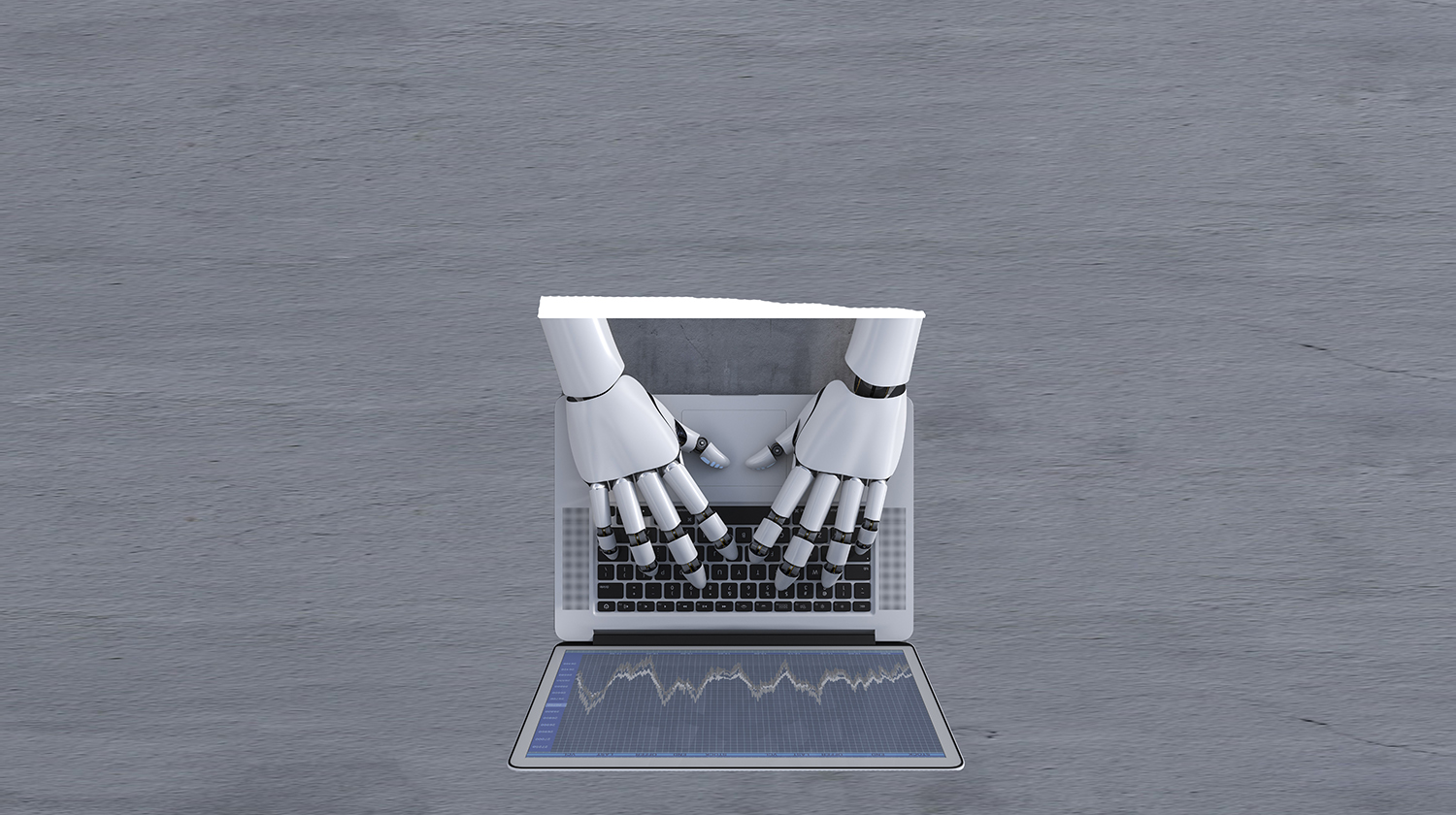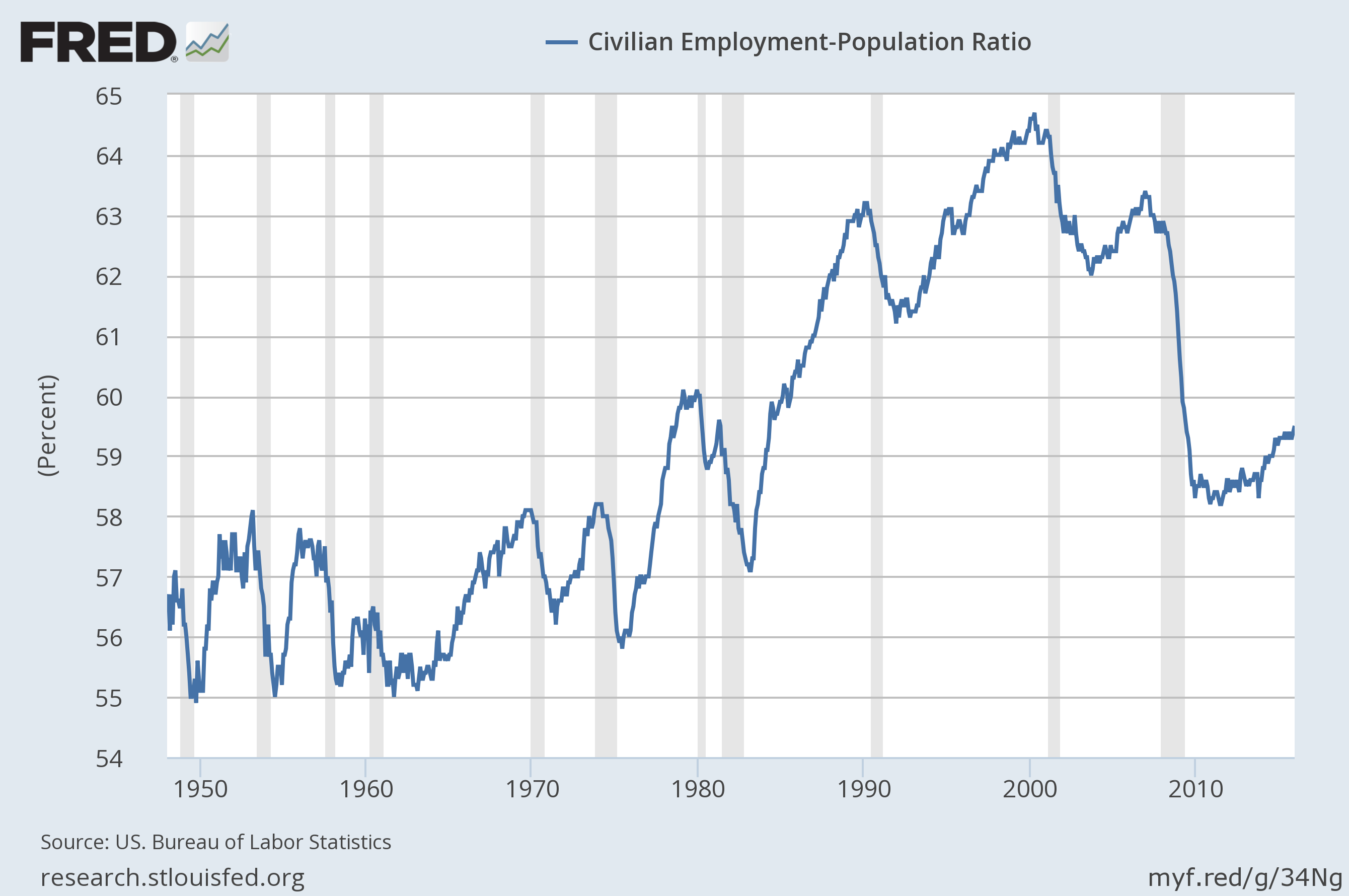Everyone at Davos was terrified of the wrong thing
Wait, robots?


A free daily email with the biggest news stories of the day – and the best features from TheWeek.com
You are now subscribed
Your newsletter sign-up was successful
By this point, you may well have heard that the robots are coming to take all our jobs. And if it worries you, you're not alone: The global political and economic bigwigs who recently closed out their annual shindig at Davos are worried too.
"A huge and quite consistent theme throughout the several days of Davos was this issue of what happens to jobs in a mechanized future," David Kirkpatrick, an author and media CEO, told Bloomberg (in the video). "There's a lot of concern at Davos among the leaders about what happens when we — the eminent elite of the world — start getting resented for making money when ordinary people don't have any income." The Silicon Valley elite are apparently feeling the same ominous portents, and are looking into ideas like a universal basic income as a result.
Let's set aside the weirdly aristocratic and self-serving tone here, and just deal with the practical question: Should we all actually be worried about the robots?
The Week
Escape your echo chamber. Get the facts behind the news, plus analysis from multiple perspectives.

Sign up for The Week's Free Newsletters
From our morning news briefing to a weekly Good News Newsletter, get the best of The Week delivered directly to your inbox.
From our morning news briefing to a weekly Good News Newsletter, get the best of The Week delivered directly to your inbox.
Well, according to standard economic theory, whenever new technology arrives, it creates as many new kinds of jobs as it destroys. The creation of the automobile is an obvious example: It may have wiped out the horse and buggy industry, but it created auto manufacturing, mechanics, taxi drivers, Uber, trucking, shipping, etc.
When you think about it, all economic activity is really just human beings trading goods and services back and forth. The only limit to it is our imaginative capacity to come up with stuff we want to sell or buy. If technological advancements remove our need to employ each other to produce certain kinds of goods and services, we'll just figure out new ways to employ each other.
And to the degree we have data we can look at, the historical evidence bears this out. American society has undergone huge technological shifts in the last 60 years. Yet from 1950 to 1975, the portion of the population employed in the economy stayed basically stable. After that, it went up as women joined the workforce.

Over this same time. America's economic output per worker has gone up too, and we've reduced the number of hours people work. That's good, and it's all thanks to rising technology.
A free daily email with the biggest news stories of the day – and the best features from TheWeek.com
But that graph only tells part of the story. Labor force participation for men specifically has been on a slow slide since 1960. And while the overall labor force did not start declining until the 2008 crash, the ratio for Americans in the prime working years of age 25 to 54 started being ground down around 2000. Other evidence of bottom-up pressure on wages, like the natural rate of interest, has been falling since at least 1990. And full employment has basically been absent since the mid-1970s.
All of that ought to clue us in that something else besides robots is going on. What we've wrongly assumed is the threat of automation is actually something else: the collapse of worker bargaining power.
Unions began a rapid decline in the late 1970s — helped along by things like right-to-work laws, and the 1981 recession induced by the Federal Reserve. The era of perpetual full employment came to an end around the same time, when the government began scaling back big macroeconomic stimulus through the budget. For the last few decades, workers have been unable to bargain for steadily higher wages or better working conditions, because they've always been under threat of losing their jobs in an economy where there's never enough work for everyone. The brief burst of full employment in the late 90s gave everyone a reprieve, but then the double digit unemployment of the Great Recession hit. What was the driving political force behind all of this? It wasn't robots — it was a decades-long effort by big businesses interests to retool regulation, monetary policy, fiscal policy, campaign finance and other policies, in order to shift wealth and power back in their direction.
A lot of economists assume new technology creates more need for workers with high skills, so workers who aren't skilled get screwed. But there's no law written in the heavens that "low skill" jobs must be low pay. If full employment is sustained, if there's a constant bottom-up pressure on the jobs supply and wages, and if workers are regularly able to claim wage increases, then new technology helps everybody. Yes, it removes old tasks, but it also creates new ones and helps workers produce more. Whatever old jobs are destroyed are replaced by new jobs that provide equal or better livelihoods. (Needless to say, a robust and generous welfare state is also crucial to helping people through these transitions.)
In fact, we should be worried we're not advancing technology fast enough. If productivity per worker stays ahead of our growing population of retirees, we can all keep reducing working hours while getting richer.
All of which brings us to the irony of the Davos crowd's nervousness. For decades, they've helped foster policies that wrecked worker bargaining power and full employment. Now they've gone so far down the rabbit hole of their own ideology that even they are mistaking this set of circumstances for the robots coming to take all our jobs.
Jeff Spross was the economics and business correspondent at TheWeek.com. He was previously a reporter at ThinkProgress.
-
 Can Europe regain its digital sovereignty?
Can Europe regain its digital sovereignty?Today’s Big Question EU is trying to reduce reliance on US Big Tech and cloud computing in face of hostile Donald Trump, but lack of comparable alternatives remains a worry
-
 The Mandelson files: Labour Svengali’s parting gift to Starmer
The Mandelson files: Labour Svengali’s parting gift to StarmerThe Explainer Texts and emails about Mandelson’s appointment as US ambassador could fuel biggest political scandal ‘for a generation’
-
 Magazine printables - February 13, 2026
Magazine printables - February 13, 2026Puzzle and Quizzes Magazine printables - February 13, 2026
